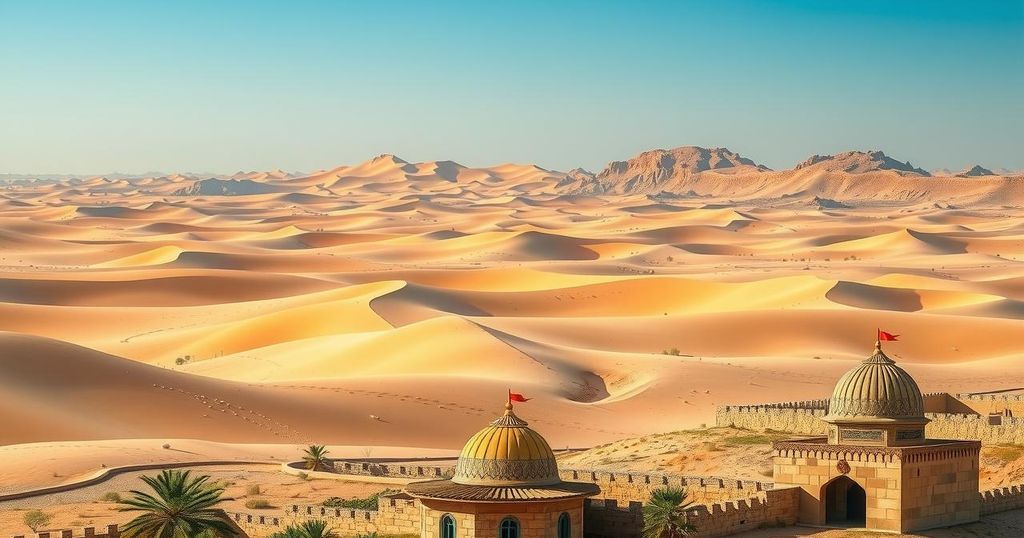The article discusses the increasing accusations against critics of Israel by its supporters, particularly targeting Qatar and Turkey. It examines the historical context of their alliance, Israel’s imperial legacy, and the implications for regional autonomy. Sheikh Mohammed’s remarks emphasize the need for self-determination in foreign policies, challenging Israeli interests. The unity of Palestinian movements poses a significant threat to Israel, prompting calls for cooperative action among regional powers.
In recent discussions, there has been an alarming trend among certain Israeli supporters who claim that critics of Israel’s influence on Western foreign policy receive financial support from Qatar. This sentiment intensified following comments made by Qatari Prime Minister Sheikh Mohammed bin Abdulrahman Al Thani regarding a possible Israeli-American strike on Iran’s nuclear facilities. Notably, similar accusations emerged during Turkish President Recep Tayyip Erdoğan’s criticisms of Israel, suggesting that Israel’s propaganda disproportionately targets Qatar and Turkey.
Qatar and Turkey’s growing alliance poses a perceived threat to Israel’s national security. This evolution is often overlooked, particularly by those vehemently critical of the Israeli state, who may fail to recognize Israel’s genocidal practices against Palestinians. Historical alliances in the region are complex and cannot be simplified to mere national or sectarian divisions. For a deeper understanding, Fawaz Gerges’s book, “Making of the Arab World,” may provide valuable insights into regional divides and their ongoing consequences.
Israel’s existence as a Zionist state represents a continuation of Western imperialism in the Middle East, a fact resented by the local populace. An interview featuring Sheikh Mohammed highlighted the misconception that the U.S. possesses the authority to dictate regional relations. Sheikh Mohammed criticized this notion as a “legacy issue,” advocating instead for regional self-management of issues. His perspective resonates with sentiments expressed by U.S. Secretary of State Marco Rubio concerning the U.S. role as a global overseer.
Despite understanding the frustrations expressed by numerous Republicans, Qatar is aware of the consequences of such “independent thinking,” particularly witnessed during the diplomatic crisis initiated by the Trump administration in 2017. Al-Jazeera’s coverage of events concerning Palestine has fueled hostility toward Qatar. While Qatar has avoided a coup attempt like Turkey faced in 2016, it continues to endure consistent attacks from adversaries within various U.S. administrations.
The fundamental challenge is that regional governance should not be dictated by Israeli interests, a principle that Israel cannot accept. This notion is echoed in Israeli Prime Minister Benjamin Netanyahu’s writings, where he indicated that the Arab world’s anti-Western sentiments stem from its loss of political autonomy. Netanyahu highlights two movements, Pan-Arab nationalism and the ideologies of the Muslim Brotherhood, as interconnected challenges to Israeli dominance, emphasizing the need to create divisions between varying movements.
Ultimately, Palestine’s potential to unify these movements represents a significant concern for Israel, wherein a united front would threaten Israeli interests in the region. Therefore, it is hoped that Sheikh Mohammed’s comments will catalyze collective action against Israel’s detrimental strategies in the Middle East.
In conclusion, the growing alliance between Qatar and Turkey represents a significant shift in the geopolitical landscape of the Middle East, one that threatens Israel’s strategic interests. The accusations against critics of Israeli policies reflect deeper issues regarding Western influence and regional autonomy. Understanding the historical context of these relationships is crucial, as is the need for regional entities to manage their own affairs independent of Israeli interests. A unified Palestinian front remains a formidable concern for Israel, which could reshape the dynamics of the region.
Original Source: www.dailysabah.com






